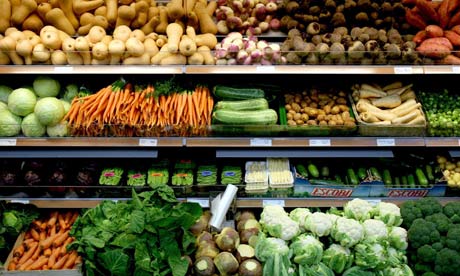
Eating a lot of fruit and vegetables has only "a very modest" effect on protecting against cancer, according to a study.
Researchers suggest that the "five portions a day" health mantra has strong validity only when it comes to preventing the disease in heavy drinkers. Even then the benefits may apply only to cancers caused by alcohol and smoking, such as those in the gut, throat and mouth.
The verdict is based on a study of almost 500,000 people in 10 European countries and suggests that even the small overall association of fruit and vegetable consumption with prevention of cancer may be linked to other factors.
Fruit and vegetable intake was compared with cancer data covering nine years up to 2000 for the research published in the Journal of the National Cancer Institute.
Researchers adjusted the results for other factors likely to influence the results, such as smoking, alcohol intake, obesity, consumption of meat and processed meat, exercise and whether women had taken the contraceptive pill or hormone replacement therapy.
The results showed that eating an extra 200g of fruit and vegetables a day reduced the overall risk of cancer by 3%. The link between eating a large amount of vegetables and reduced cancer risk applied only to women.
The study, led by Paolo Boffetta from the Tisch Cancer Institute at Mount Sinai School of Medicine in New York, suggested a "weak" association between high fruit and vegetable intake and reduced cancer risk.
An accompanying editorial by Walter Willett of the Harvard School of Public Health said efforts to increase fruit and vegetable consumption were still worthwhile because accumulating evidence showed that they helped protect against cardiovascular disease and "a small benefit for cancer remains possible". Research now should focus more sharply on specific fruits and vegetables – including lycopene in tomatoes which, studies suggest, helps protect against prostate cancer – and on reducing smoking and obesity.
NHS advice in Britain is careful to say that eating five portions a day can help reduce the risk of "some cancers", including bowel cancer, and heart disease, type 2 diabetes, strokes and obesity.

